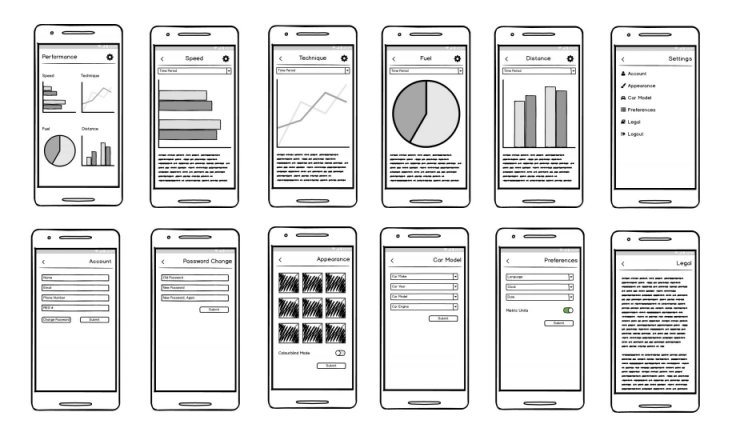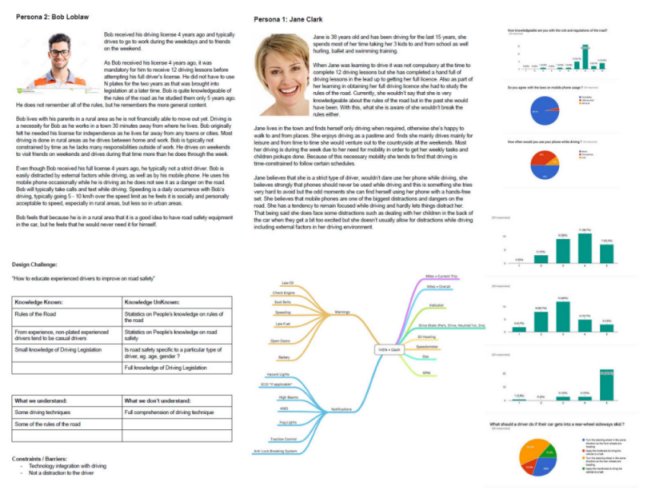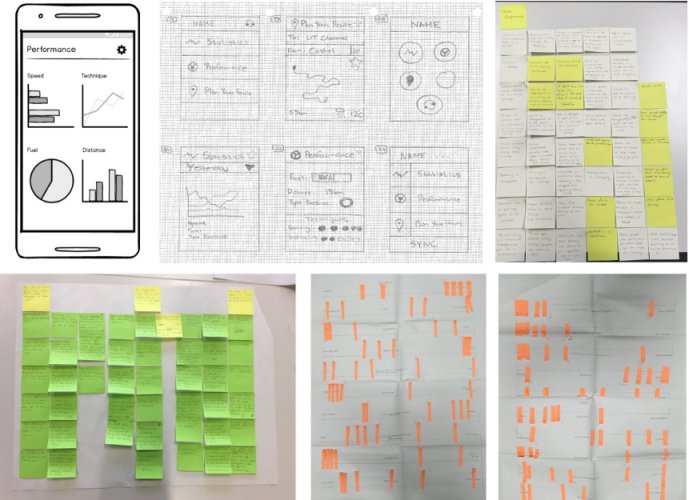


In-car driver assist combining a smartphone app with in-car display to reduce driver distractions. Intellectual Virtual Engine Noticeboard (‘IVEN’) monitors performance and analyses driving abilities (a Fitbit for complacent drivers). Techniques include research, user interviews, empathy mapping, personas, storyboards, wireframing and low-fidelity prototyping.
This projects was a team based project consisting of myself and another. The project was completed through ideation to low-fidelity prototyping. As a team a common problem was estblished that would be used as the project focus.
The proposed solution eliminated the use of mobile phones by using the phone as a key for the car, this 'key' activated a screen which would replace the standard dashboard or overlay the windscreen. IVEN contains more features and voice activation to enhance and provide drivers with extended capabilites while remaining focused on driving.

The project focus point was on experienced driver who have been driving for more than 4 years, with research it was found that those who are more experienced and complacent are more likely to speed, get distracted and not enforce driving techniques. A number of interviews, surveys, card sorts activites, observations and persona construction were utilized to help gather the requirements to properly scope the solution.

With this research, a number of information analysis and evaluations were carried out to gather the data needed. Empathy maps, behavioural variables, mapping these variables, personas, scenario's, brainstorming, gut checks, storyboards, wireframing and prototyping where techniques that were used. For low-fidelity prototyping we built a physical prototype out of paper and a digital prototype using Balsamiq. Below are some images demonstrating this analysis
